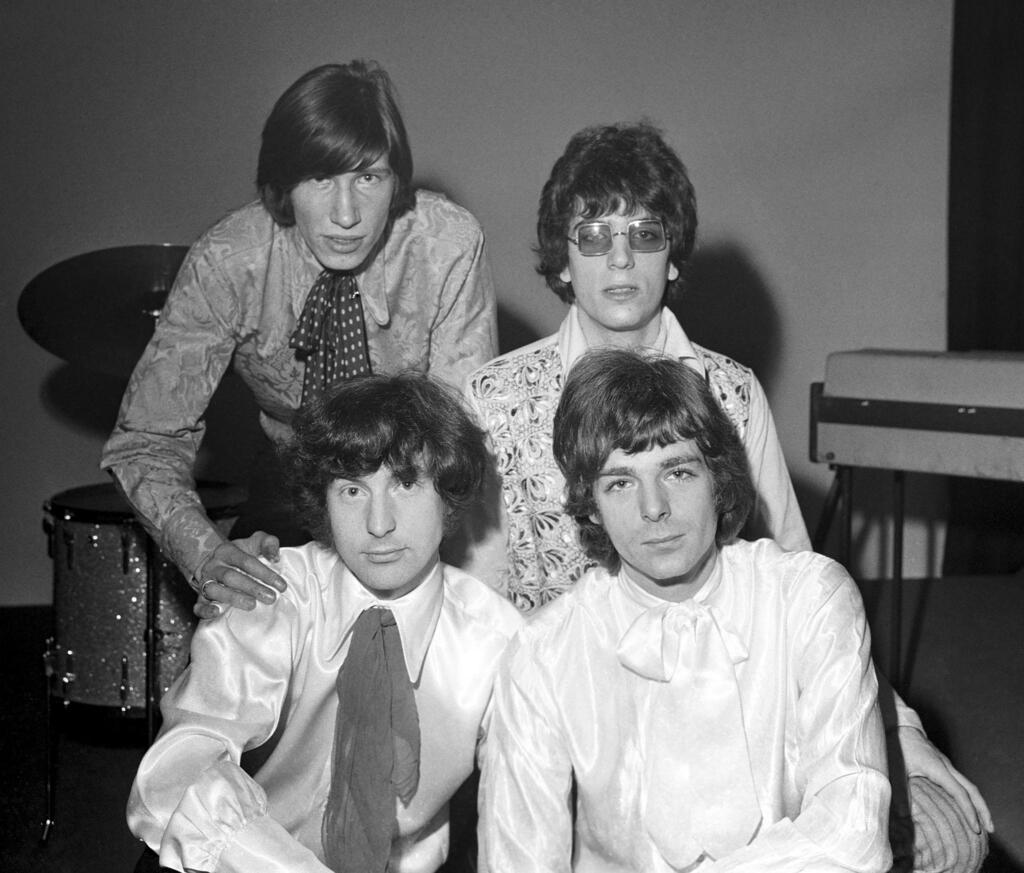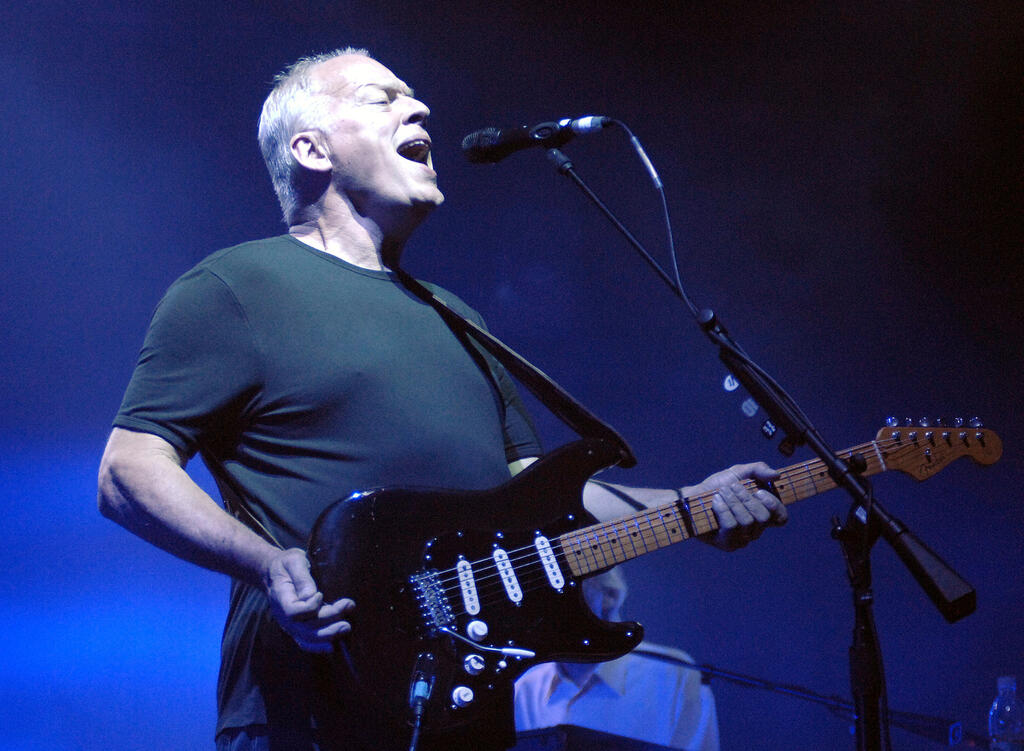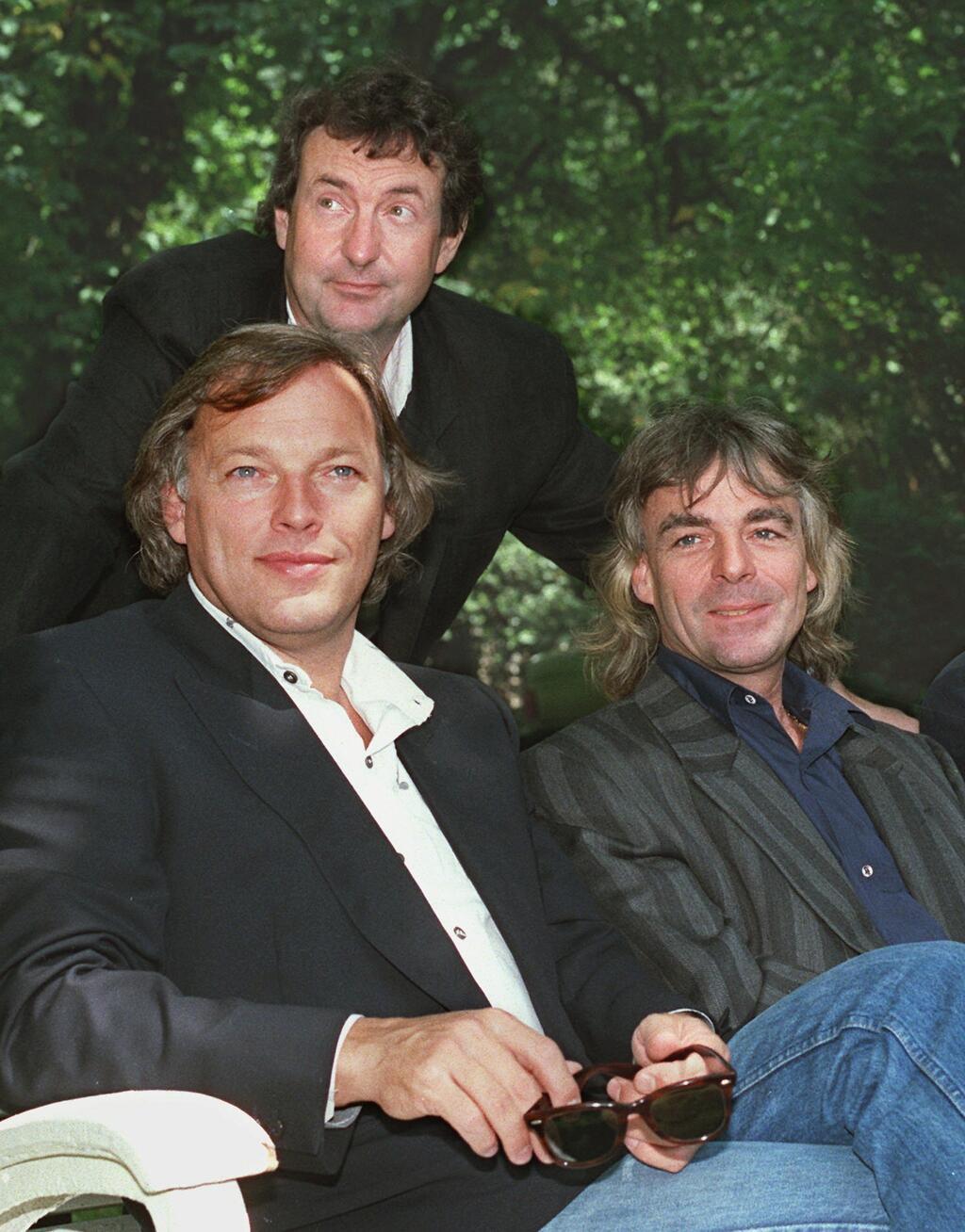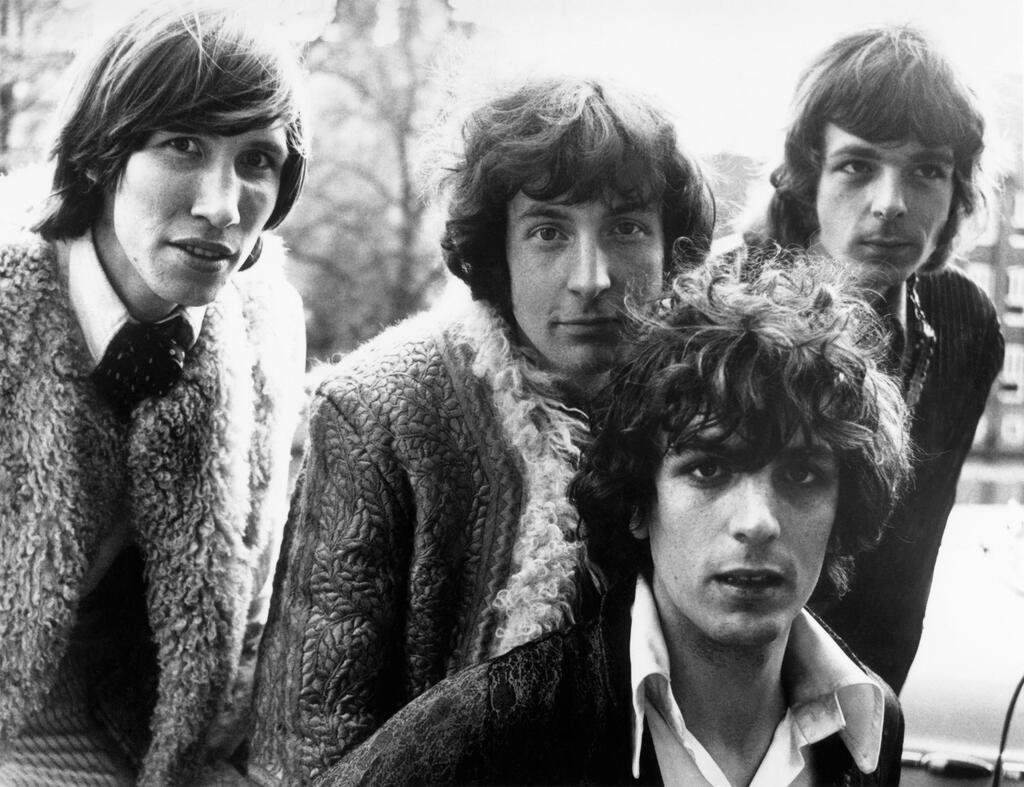For the past four decades, which constitutes half of his life, Roger Waters has been primarily involved in activism. He has dedicated his efforts to various causes, including his former band Pink Floyd, the United Nations in relation to the Russia-Ukraine conflict and the State of Israel. Waters expresses his activism through his performances on stage, occasional media interviews and active participation on the prominent social network X, formerly known as Twitter.
Read more:
It remains unclear how this noteworthy and influential rock musician from the 1970s, who played a significant role in creating some of the most iconic albums in history with the band he led, has found himself in such a controversial position.
Understanding why an accomplished and affluent individual like Waters has chosen to spend his later years in this manner poses a challenge. Nevertheless, indications of obstinacy and Waters' fixation began to emerge shortly after the separation of Syd Barrett, Pink Floyd's original frontman, due to his deteriorating mental state around 1968 after just one and a half albums.
On Thursday, his 80th birthday, Roger Waters was recognized for transforming Pink Floyd into a musical and economic powerhouse during the 1970s. Even now, he continues to assert his connection to the band's legacy, although not always with complete justification. This is evident in his upcoming release of a new version of the iconic album Dark Side of the Moon, as well as his previous rendition of The Wall a few years ago.
Waters' recent reinterpretation of the 1973 album, particularly songs like Time and Money, has generated considerable interest, eliminating any need for anticipation. His contemporary treatment of this seminal masterpiece, which emphasizes the darker aspects of both the moon and Waters himself, is happening concurrently and primarily in response to the band's official anniversary festival for the album. It also serves as a continuation of the home recordings album he created during the COVID-19 lockdown, where he delivers somber and introspective performances of other songs from his former workplace.
The path to divorcing Pink Floyd
Listening to The Lockdown Sessions, one can gain insight into Waters' perspective on the band he was expelled from almost 40 years ago. According to him, Pink Floyd only has two albums that would justify a reunion. The first is The Wall, which predominantly showcased Waters' solo performance. The second is its direct continuation, The Final Cut, which can be seen as essentially a solo album by Waters with some contributions from other band members.
However, these new recordings, characterized by a somber and minimalist production style, along with the inclusion of female vocals, don't offer much in terms of novelty. Waters' decision to incorporate acoustic guitars in places where David Gilmour's electrifying guitar once shone (particularly evident in the iconic rendition of Comfortably Numb) not only fails to push him out of his comfort zone but is also perceived as diminishing the significance of the guitarist who was once his bandmate.
It should come as no surprise that Waters and the Pink Floyd brand are no longer in sync and are drifting further apart. Waters himself bears significant responsibility for tarnishing the band's reputation. His distinctive approach, which he initiated years ago when he was the driving force behind the band, provided ample ammunition for those who took pleasure in ridiculing this remarkable group.
In 1977, with the release of the album Animals, which marked the start of Waters' dominance over the band's artistic direction and activities, Johnny Rotten of the Sex Pistols famously sported a shirt boldly declaring "I Hate Pink Floyd."
The rebellious punk movement, born partly as a vehement rejection of the virtuosity and grandeur associated with many progressive rock bands (which may be somewhat less relevant to the current discussion on the band's legacy), continues to be referenced in conversations among those who either dismissed or discovered Pink Floyd for the first time (and such individuals still exist today). It also pops up among those who criticized Waters' aspirations that he insisted Pink Floyd should pursue.
Four decades since Waters' departure from Pink Floyd, it appears that he has undergone very little change. The Wall, a theme he sang about in 1979 and was brought to life during the album's tour, accurately depicts his relationship with his bandmates and likely resonates with anyone who was not privy to his inner thoughts.
The handful of albums he released as a solo artist predominantly maintain the same bombastic and self-righteous style he first established with Animals in 1977. This artistic trajectory reached its pinnacle with the highly successful double album, The Wall, released two years later. It can be inferred that it concluded with The Final Cut in 1983, marking the finalization of his separation from Pink Floyd.
During the fights that unfolded within the rehearsal rooms and studio under Waters' authority, he held a position of influence. However, as the internal conflicts within the band escalated into lawfare, Waters found himself on the losing side. He was ousted and prohibited from using the band's name, yet he ensured to maintain a strong connection with at least two cherished and significant works of the band that he considered personal disappointments.
He dedicated concert tours to the albums The Wall and The Dark Side of the Moon. In 2006, he even embarked on a highly publicized visit to the Holy Land, causing massive traffic jams along the way.
A solo career that chases the zenith of yesteryears
Prior to his return to writing the band's iconic songs, Waters embarked on a solo career. He released his first three solo albums The Pros and Cons of Hitchhiking in 1984, featuring an unforgettable Eric Clapton performance as a contrasting force to Gilmour's guitarwork, which proved to be a success; Radio K.A.O.S in 1987, followed by Waters' inaugural solo tour; and Amused to Death in 1992, widely regarded his finest solo work. Listeners can envision how Pink Floyd might have sounded to Waters during this period, as he continued to embody the role of the band's creative force.
When listening again to these three albums, one can certainly discover moments of beauty, yet they lack three crucial elements: Gilmour's mesmerizing playing, Wright's masterful touch on the keys and Mason's rhythmic drumming. Waters' contribution to these albums can be compared to that of a skilled contractor. As he stands next to the drawing board, he incorporates the textual and musical motifs he had established in Pink Floyd.
However, upon arriving at the construction site without the collaboration of other talented professionals who would later bring forth the magnificent structure, Waters, who had studied architecture in his youth, surely understands that while every building starts with a solid frame and sturdy foundations, to progress from the engineering stage to the realm of artistic essence, one also requires a soul and the ability to soar.
In the early and mid-70s, Pink Floyd had an abundance of creativity. After Syd Barrett's departure, they seemed to be lost but quickly found their footing with their progressive albums from the turn of the decade (Atom Heart Mother in 1970 and Meddle in 1971).
This was fully realized in their notable concept albums, The Dark Side of the Moon in 1973 and Wish You Were Here in 1975, dedicated to Barrett. Along the dividing line between these two albums, something in the internal Pink Floyd dynamics began to crumble.
The first of the two was indeed born in Waters' mind, who also wrote all the lyrics, but it was a joint effort and a clear achievement of the four musicians. In contrast, in the band's tribute to Barrett in 1975, one could already see the beginning of the feud between Waters and Gilmour.
Mason, the drummer, barely contributed anything to this album; Wright, although working well there, was disheartened throughout; and Gilmour, whose guitar skills were at their peak, refused to sing Have a Cigar, leading to his good friend, Roy Harper, being invited to perform instead.
During the course of 1975, internal tensions within Pink Floyd gradually boiled until Waters decided to leave. Meanwhile, the remaining three members pursued their own solo projects, eventually finding personal fulfillment. This divergence between Waters and Pink Floyd allowed both sides to continue their respective musical journeys. However, in retrospect, both parties lost big because of this feud.
Waters' solo albums showcased conceptual depth and intensity, but they lacked the melodic sensibilities of Gilmour and Wright. Even Pink Floyd's subsequent albums under Gilmour's leadership, such as 1987's A Momentary Lapse of Reason and 1994's The Division Bell, encountered challenges of a different nature.
In 2005, just one year before Wright (and Barrett) passed away, the iconic quartet of Pink Floyd came together once again for a brief and memorable performance at Live 8. It was Bob Geldof, the organizer and renowned star of The Wall film, who got them to put their differences aside and unite for a noble cause. This reunion instantly captured the attention and excitement of both fans and the media.
However, as soon as the four members graced the stage and began playing, it became evident this was a unique and singular occurrence. Despite over 20 years passing, the lingering wounds of the past proved insurmountable, ultimately preventing any possibility of a lasting reunion.
Waters' transformation remains a puzzling enigma considering his upbringing without his pacifist father, who tragically perished in World War II (a loss commemorated in the album The Final Cut).
At the pinnacle of his career, he betrayed many of their shared values, succumbing to an inexplicable envy. His vehement denouncement of materialism gave way to the stereotype of a disengaged and bored wealthy rock star. As a child who grew up fatherless, he grappled with the challenge of overcoming his separation from Barrett, delving extensively into themes of madness and eventually becoming consumed by obsession himself.
Despite his staunch opposition to politicians, branding figures like Margaret Thatcher of the Falklands War and Menachem Begin of the First Lebanon War as warmongers (critiqued in The Final Cut), Waters paradoxically celebrated the fall of the Berlin Wall by staging a performance of The Wall in the reunited city.
His alignment with Putin stemmed solely from Gilmour's support for Ukraine in the face of unprovoked aggression. Waters' narrative is undoubtedly thought-provoking, yet tinged with a profound sense of sadness.
In today's cancel culture, it may be tempting to link the past work of an individual from the 1970s to their current expressions of antisemitism and anti-democratic views, leading us to distance ourselves from them. It's understandable why some might choose this path, but it ultimately results in a lose-lose. It's unlikely that the obsessive Waters will change or retract his statements, so why should we deprive ourselves of the amazing music he and his bandmates once created?
Instead of canceling him, it may be more beneficial to simply ignore him. Even his version that bears resemblance to The Dark Side of the Moon, based on the snippets released so far, doesn't appear to be a masterpiece worthy of reshaping one's agenda.
Nevertheless, the old Pink Floyd albums still have their place on record shelves or on streaming platforms like Spotify, and those whose musical and cultural tastes have been influenced by them will continue to find immense joy in them, even in 2023.







